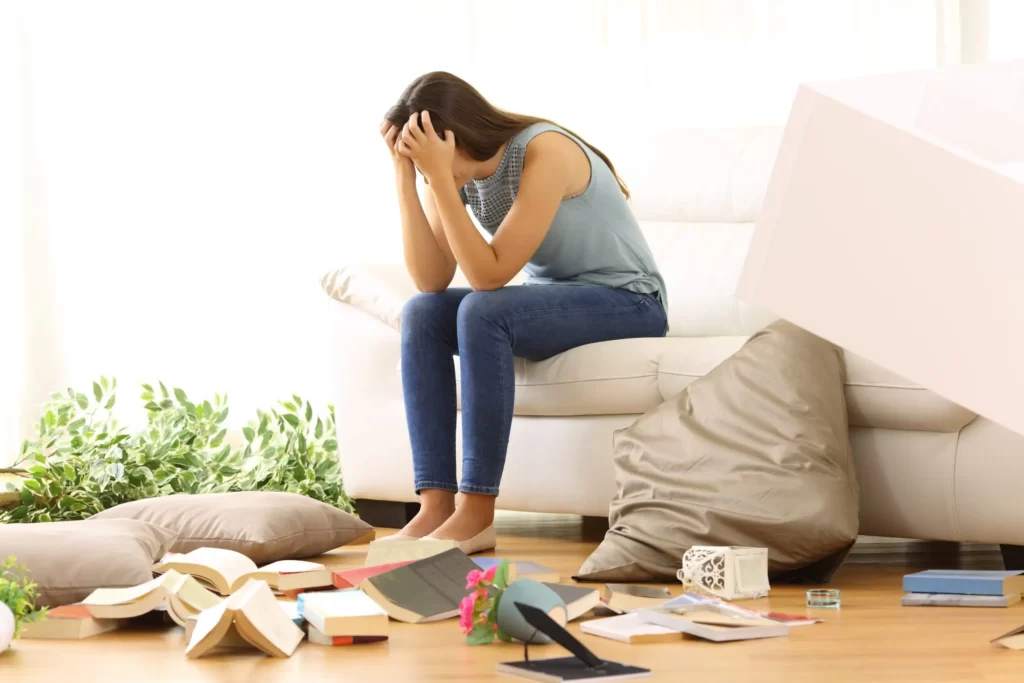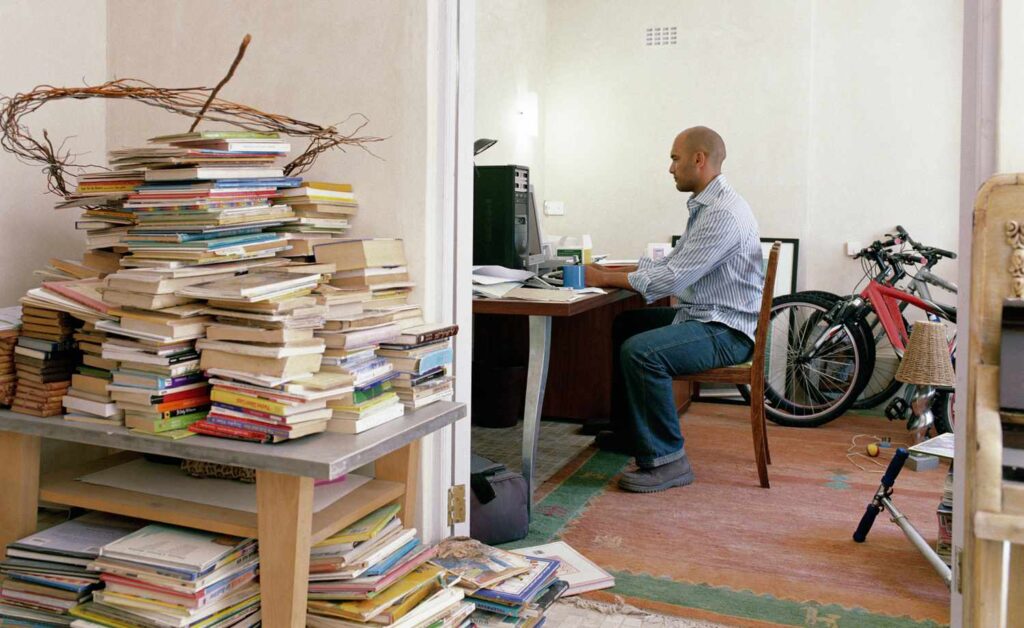Decluttering is challenging, and it’s a process that many people find intimidating. There are lots of reasons why it can be difficult to let go of our belongings, from emotional attachments to practical concerns about waste or future need. Yet the benefits of decluttering are well worth it! A more organized space can lead to a clearer mind, greater efficiency in daily tasks, and an overall sense of well-being.
Understanding what makes decluttering so tough is the first step in overcoming those barriers. From sentimental connections to items to the fear of regretting something discarded, the reasons can be deeply personal and varied. But with the right strategies and a clear vision of the benefits, you can navigate these obstacles and create a space that reflects your needs and values.
Here are the most common reasons why decluttering is so difficult, along with actionable tips and insights on what you can do to make it easier. Whether you’re looking to simplify a single drawer or overhaul an entire home, we’re here to guide you through the process. Let’s get started on this journey towards a more organized and joyful living space!
There’s Just Too Much Clutter
If you’ve ever caught yourself starting to think or saying, “My house is too messy to clean,” you know the feeling.
Seeing all of that stuff pile up can make you doubt your ability to get through it all and discourage you.
Don’t let these feelings win! To counteract them, make a conscious decision to believe in yourself and your decluttering abilities. Recognize that you have the ability to change your surroundings.
If people can scale Mount Everest, you can scale the mountains of clutter!
The Clutter is Too Overwhelming
Dealing with unwanted items can trigger a variety of negative emotions, including anxiety and depression. If you’re feeling frustrated, angry, or overwhelmed while decluttering, know that you’re not alone and give yourself some grace.
Don’t try extreme decluttering; instead, go at your own pace.
Divide your decluttering into small, manageable steps, and celebrate your successes. By doing a little bit at a time, you can still move forward without being overwhelmed by negative emotions.
You Keep Stuff “Just in Case”
The key to parting with unwanted items that you tend to stockpile just in case you need them someday is to recognize that “someday” may as well mean “never” in most cases.
Be completely honest with yourself: how likely is it that you will use your old broken laptop someday?
Let me guess: it’s highly unlikely. It’s five years old and slower than molasses. It has no future useful life, even as parts. Your power moment has arrived; make the difficult decision to let go and declutter!
You Have a Scarcity Mindset
Decluttering can be especially difficult if you have been poor, broke, or in debt for an extended period of time. Financial insecurity and poverty frequently result in a scarcity mindset, which can lead to various levels of hoarding behavior.
If you feel compelled to accumulate more and hoard items in order to feel secure, you are probably aware that purchasing and owning only provide elusive, temporary security.
Attempt to overcome your fears and cultivate an abundance mindset. When you realize that you have enough to meet your needs, your financial concerns will fade, and you will naturally stop clinging to clutter.
You Struggle With Financial Guilt
Do you know what the term “buyer’s regret” (or “buyer’s remorse”) means? Both terms are used interchangeably to describe guilt or regret following a hasty or unnecessary purchase.
The most pernicious aspect of buyer’s remorse is that it does not always strike immediately. It can also happen over time. When you buy something you really like, you may be pleased with it at first, but as time passes and the item becomes dusty on the shelf, it becomes clear that you wasted your money.
To avoid it, you put it in your house’s storage room to “deal with it later,” but when you come across it while cleaning, it reminds you of your poor purchasing decisions, and financial guilt sets in.
This can make it difficult to throw things away; you don’t want to feel as if you frittered away money!
Begin by forgiving yourself for the mistakes of the past. It’s okay to let go of something you no longer value or enjoy. You are becoming more thoughtful and mindful in your purchasing decisions.
Decluttering provides you with a fresh start, which you both need and deserve!
You Used to Love It!
Almost everyone has sentimental attachments to things they once loved. However, holding on to too much of the past can prevent us from being fully present in the present!
The key is to recognize that throwing things away will not result in the loss of treasured memories. Even if you get rid of those skis you haven’t touched in ten years, you won’t forget how much fun you had skiing in the mountains.
Even though we and our possessions change, the past does not. Focus on making room for the things that matter to you RIGHT NOW!
The Items Belonged to a Loved One
Getting rid of sentimental clutter that belonged to someone important can be just as difficult as saying goodbye to favorite childhood mementos.
It’s difficult to declutter when you’re stuck with your parents’ belongings and other family heirlooms—as a sentimental person, I understand this so well that it hurts!
However, if you treat everything as if it were special, nothing truly is!
Remember, your life is your own; you should not feel responsible for items left behind by loved ones unless you love or use them in your home.
You Don’t Set Clear Room Boundaries
If you (or others with whom you live) do not put things away after they have been used, you will soon find the same things scattered around the house, creating a sense of chaos and disorder. This common problem can lead to frustration and wasted time searching for items when you need them.
To keep clutter at bay, assign a home for your “wandering items.” Whether it’s a designated drawer for remote controls or a specific shelf for books, having a dedicated place for everything will make it easier to maintain order. And remember, consistency is key; returning items to their proper places should become a routine habit.
Don’t forget to establish clear room boundaries as well. If you decide to keep children’s toys in the playroom, make sure they aren’t scattered around the house after they’ve finished playing. Creating zones for specific activities helps ensure that items are used and returned to the right areas. Alternatively, if toys do venture out of the playroom, teach your children to be responsible and clean up after themselves to reduce your workload. Involve them in the process, make it a fun game, and they’ll be more likely to participate willingly.
Boundaries are essential in your decluttering efforts because they keep everything organized and foster a sense of ownership and responsibility. This principle applies to every room and every member of the household. Whether it’s the kitchen, home office, or garage, clear boundaries promote efficiency, reduce stress, and make daily living more enjoyable.
In implementing these strategies, you not only cultivate a more organized environment but also create a home where everything has its place, and every space is functional and pleasing. Embracing this structured approach can transform your home into a sanctuary where each room serves its purpose, and clutter becomes a thing of the past.
Other People’s Clutter is a Big Problem
Combating other people’s clutter can significantly slow down your decluttering efforts. It’s difficult to keep your living space clean when a loved one is a hoarder (or cluttered).
Remember that you can’t control what other people do.
If they don’t want to clean or declutter, you can’t make them. And nagging or disposing of other people’s belongings on their behalf can breed resentment and strain your relationships.
Choose to set a good example by leading by example.
When they see the positive results of your efforts, it may inspire them to join you. It is much easier to guide someone who is open to receiving help than it is to try to change someone who is not.
In the meantime, be patient and concentrate on your own decluttering work. By doing so, you can still go a long way toward decluttering success!
You Are Afraid You’ll Make Mistakes
Mistakes in decluttering can occur, as can anxiety about throwing things away. Fortunately, this scenario is uncommon.
Most of the time, if you declutter mindfully, the items you get rid of will never cross your mind again.
If you are unsure about getting rid of something, you can always put it in a time-out box for 3-6 months before making a decision. Just remember to ask yourself, “Am I ready to let this go?”
You Have Physical or Health Barriers to Successful Decluttering
If health issues or limited mobility impact your ability to declutter, give yourself grace. You might need to break decluttering sessions into smaller chunks of time or take frequent breaks.
Also, it doesn’t hurt to ask for support! You can hire help! Don’t hesitate to reach out to professional organizers like myself if you face challenges. Group efforts can create desired results much faster, and if needed, I can even work with you virtually.
You Just Don’t Know Where to Start
Sometimes, there aren’t any significant barriers to decluttering that you can actually put your finger on. You might have the best intentions, the right tools, and even a plan in place, yet somehow you still can’t get started. This mysterious inertia is common and can be frustrating, leaving you feeling stuck in a cluttered environment that doesn’t serve your needs.
Decluttering is more than just a physical act; it’s a mental and emotional journey as well. Perhaps subconscious fears or indecision are holding you back. Maybe the sheer scale of the task feels overwhelming. Or perhaps you simply don’t know where or how to begin. Whatever the underlying reasons, these hidden obstacles can be more challenging to overcome than tangible barriers like a lack of time or space.
Let us help you. As professional organizers, we understand the complexities of decluttering and can provide personalized guidance tailored to your unique situation. Together, we’ll explore your decluttering challenges, identify any unseen hurdles, and develop a strategy that works for you. We’ll break down the process into manageable steps, ensuring that you feel supported and empowered every step of the way.
Working with a professional organizer can make a world of difference. With expertise in space planning, organization, and motivational techniques, Just Organized by Taya can transform what seems like an insurmountable task into an achievable goal. More than just tidying up, we’ll create a living space that reflects your personality, values, and lifestyle.
Contact us today, and let’s discuss your decluttering challenges and how we can collaborate to create a harmonious home that brings you joy and peace. The journey to an organized life begins with a single step, and we’re here to guide you every step of the way.
- The Post-Christmas Reset: What to Do (and What to Skip) This Weekend - December 26, 2025
- The Week-Before-Christmas Survival Guide: Last-Minute Gift Organization Tips - December 18, 2025
- 7 Things in Your Kitchen Right Now That Need to Go - December 16, 2025






